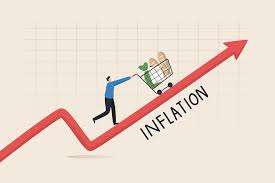
In Nigeria’s current economic climate, property investors face unique challenges and opportunities. Inflation, fluctuating exchange rates, and other economic pressures require investors to adapt their strategies to ensure profitability and sustainability. Here’s how investors can adjust their strategies and budget for property maintenance and renovation in a challenging economic environment.
Adapting Investment Strategies
- Diversify Property Portfolio:
- Residential and Commercial Mix: Invest in both residential and commercial properties to spread risk. Residential properties typically provide stable rental income, while commercial properties can offer higher returns during economic upturns.
- Location Diversification: Consider properties in different regions of Nigeria. While major cities like Lagos and Abuja are popular, emerging markets in other states can offer lucrative opportunities.
- Focus on Affordable Housing:
- Increased Demand: With economic constraints, there is a growing demand for affordable housing. Investing in this segment can ensure a steady rental income.
- Government Incentives: The Nigerian government often provides incentives for developing affordable housing, which can reduce initial investment costs.
- Leverage Technology and Innovation:
- PropTech Solutions: Use property technology (PropTech) to streamline operations and reduce costs. Examples include digital platforms for property management and virtual tours for marketing.
- Green Building Technologies: Invest in energy-efficient and sustainable building technologies. This not only reduces long-term maintenance costs but also attracts environmentally conscious tenants.
- Flexible Rental Agreements:
- Short-Term Rentals: Consider short-term rentals or lease agreements. This provides flexibility to adjust rental rates according to market conditions.
.
- Partnerships and Joint Ventures:
- Collaborate with Other Investors: Form partnerships or joint ventures to pool resources and share risks. This can be particularly useful for large-scale projects.
- Engage with Local Communities: Work with local communities and stakeholders to understand market needs and gain support for projects.
Budgeting for Property Maintenance and Renovation
- Regular Maintenance Schedules:
- Preventive Maintenance: Implement regular maintenance schedules to prevent major issues. This includes routine checks on plumbing, electrical systems, and structural integrity.
- Use of Maintenance Management Software: Utilize software to track maintenance activities and costs, ensuring efficient allocation of resources.
- Prioritize Essential Renovations:
- Focus on High-Impact Areas: Prioritize renovations that improve property value and tenant satisfaction, such as kitchen and bathroom upgrades, or energy-efficient installations.
- Cost-Benefit Analysis: Conduct a cost-benefit analysis for each renovation project to ensure it aligns with investment goals and budget constraints.
- Sourcing Cost-Effective Materials:
- Local Suppliers: Purchase materials from local suppliers to reduce costs and support the local economy.
- Bulk Purchasing: Buy materials in bulk to benefit from discounts and reduce overall expenses.
- Energy Efficiency Upgrades:
- Solar Panels and LED Lighting: Invest in energy-efficient upgrades like solar panels and LED lighting to reduce utility costs and attract eco-conscious tenants.
- Insulation and Smart Thermostats: Enhance insulation and install smart thermostats to improve energy efficiency and reduce maintenance costs.
- Professional Property Management:
- Hire Experts: Engage professional property management companies to handle maintenance and renovations. This ensures quality work and allows investors to focus on strategic planning.
- Regular Inspections: Conduct regular property inspections to identify issues early and address them promptly, preventing costly repairs.
Key Economic Factors Influencing Real Estate Investment in Nigeria
Understanding the economic factors that influence real estate investment in Nigeria is crucial for making informed decisions. Here are five key factors:
- Inflation Rates:
- Impact on Purchasing Power: High inflation reduces the purchasing power of consumers, affecting their ability to afford property. Investors need to consider this when setting prices and rental rates.
- Cost of Construction: Inflation increases the cost of construction materials and labor, impacting overall project budgets and timelines.
- Exchange Rates:
- Foreign Investment: Fluctuating exchange rates can deter foreign investors due to currency risk. Investors should monitor exchange rate trends and consider hedging strategies.
- Import Costs: Many construction materials are imported, and exchange rate volatility can increase costs. Sourcing local alternatives can mitigate this impact.
- Interest Rates:
- Financing Costs: High interest rates increase the cost of borrowing, affecting the feasibility of projects. Investors should explore alternative financing options or negotiate better terms with lenders.
- Investment Returns: Higher interest rates can also attract investors to fixed-income securities over real estate, impacting demand.
- Government Policies:
- Tax Incentives and Regulations: Government policies, including tax incentives for real estate investment and regulations affecting property development, play a significant role. Staying informed about policy changes is crucial.
- Housing Programs: Government housing programs can create opportunities for investors, especially in affordable housing segments.
- Economic Growth and Employment Rates:
- Market Demand: Economic growth and employment rates directly influence market demand for residential and commercial properties. Investors should focus on areas with strong economic prospects.
- Income Levels: Rising income levels increase the affordability of properties, while economic downturns reduce purchasing power and demand.
